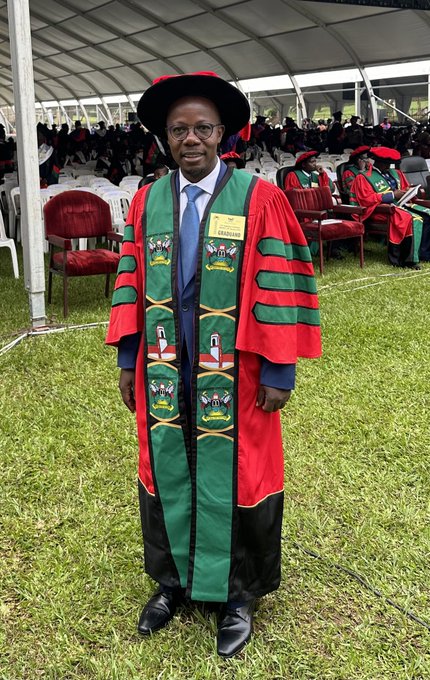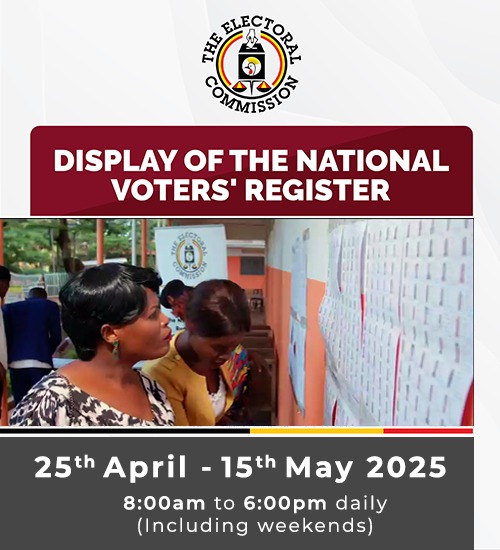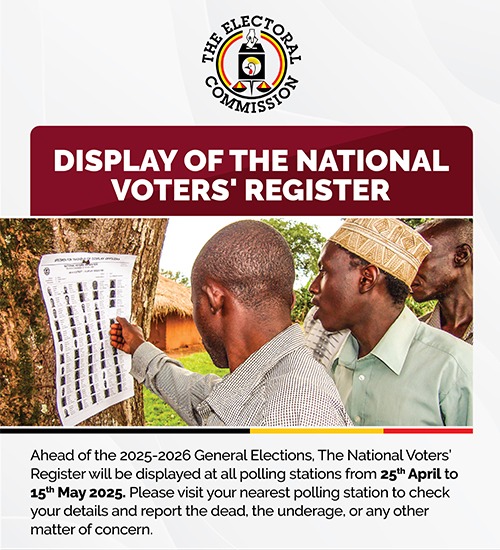Makerere, Uganda – In a significant contribution to the field of hematology, Dr. Henry DDUNGU’s doctoral study has restored hope to blood cancer patients.
Dr. Ddungu who graduated today with a Doctor of Philosophy from Makerere University in Uganda, investigated the optimal use of blood and platelet support transfusion in patients with hematological cancers in Uganda.
His study titled “Optimal Use of Blood and Platelet Support Transfusion in Patients with Haematological Cancers in Uganda” sheds light on the challenges faced in a country where the demand for blood products is high, but resources are scarce.
Dr. Ddungu’s research was driven by the critical need to understand the dynamics of blood and platelet transfusion in the context of hematological cancers.
The scarcity of blood products in Uganda posed a considerable challenge, given the elevated demand, particularly among cancer patients.
The study also delved into the experiences of both patients and healthcare providers, aiming to identify areas for improvement and optimization.
High Demand vs. Limited Availability
One of the key findings of the research was the stark contrast between the high demand for blood products among cancer patients and the lower-than-needed availability.
“This disparity underscores a significant healthcare challenge, prompting a closer examination of the factors contributing to the scarcity of blood resources in the country,” says the study.
The study also revealed gaps in doctors’ knowledge basics of blood transfusion, indicating a need for enhanced training and education in this critical aspect of patient care.
By identifying these knowledge gaps, Dr. Ddungu’s research has laid the foundation for targeted interventions that can improve medical practices and ensure the safe and effective use of blood products.
A notable insight from the research was the impact of lowering the threshold for platelet transfusion.
In his study, for instance, he has been able to demonstrate that a lower trigger for platelet transfusion led to fewer transfusions without compromising patient safety.
This key finding suggests that adopting a lower threshold, as practiced in resource-rich countries, could be an optimal strategy for transfusions in Uganda.
“However, the successful implementation of such practices would require health worker training and adherence to evidence-based guidelines,” he argued.
Recommendations for Improved Patient Care
Dr. Ddungu’s research not only highlights the existing challenges in blood product availability but also provides actionable recommendations for improving patient care.
The findings emphasize the urgent need for increased efforts to secure an adequate and stable supply of blood products, coupled with comprehensive training programs for healthcare professionals involved in transfusion practices.
This impactful study was funded by Fogarty/NCI D43 Training Grants, enabling Dr. Ddungu to undertake this crucial research.
Under the guidance of his supervisors, Prof. Noah Kiwanuka, Dr. Isaac Kajja, and Prof. Anna Wald, the study has opened avenues for further exploration and interventions aimed at enhancing the quality of care for patients with hematological cancers in Uganda.
About The Author
Arinaitwe Rugyendo
Rugyendo is the Founder and Editor-in-Chief of ResearchFinds News. He’s an accomplished journalist with a rich background in the media industry in Uganda. With over two decades of experience, Rugyendo has held various roles including cab reporter, Bureau Chief, Managing Editor, and Digital Media Editor at renowned publications such as Daily Monitor and Red Pepper. Throughout his career, he has demonstrated a commitment to delivering high-quality journalism and staying at the forefront of media trends. In addition to his journalistic pursuits, Rugyendo is currently pursuing a Ph.D. in Journalism and Communication at Makerere University. He has been recognized for his outstanding leadership and commitment to social change as a Desmond Tutu Fellow and Crans Montana New Leader. Rugyendo also serves as the Chairman of Young Engineers Uganda and Uganda Premier League, showcasing his dedication to promoting excellence and growth in various fields. With a passion for driving innovation and pushing boundaries in media, Rugyendo continues to make significant contributions to the industry. His vast experience, academic pursuits, and leadership roles make him a respected figure in the Ugandan media landscape.
















